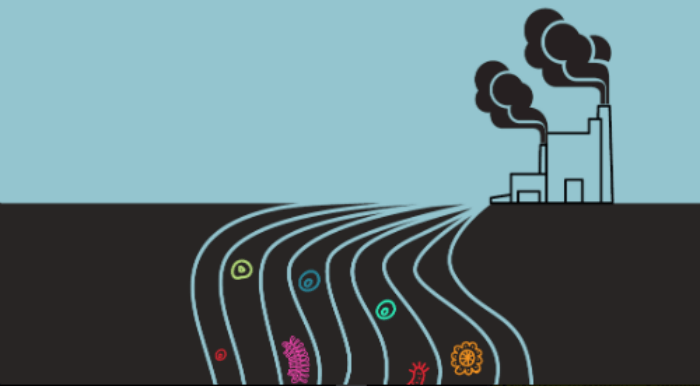
Antimicrobial resistance (AMR) is a growing worldwide health problem. The U.S U.S. Centers for Disease Control and Prevention define AMR as the “ability of microbes to resist the effects of drugs” -- a scary phenomenon given that antibiotics are our best defense against bacterial infection. In the U.S., over $2 million in estimated illnesses and 23,000 deaths are linked to antibiotic resistance annually. Drug-resistant bacteria also cause an estimated 25,000 deaths and cost over $1.5 billion a year in healthcare expenses and productivity losses in the EU, according to the World Health Organization. Global AMR deaths are expected to reach 10 million a year by 2050 and will cause economic losses of $100 million.
That makes a new discovery even more disturbing: Drug-resistant bacteria were recently found at pharmaceutical manufacturing sites in India. The investigative agency Ecostorm conducted on-the-ground research in June 2016. Dr. Mark Holmes from the University of Cambridge analyzed water samples and found high levels of drug-resistant bacteria at sites in three Indian cities (Hyderabad, New Delhi and Chennai). The results were compiled into a new report by Changing Markets, a campaigning organization.
India is a major drug production hub with thousands of pharmaceutical manufacturing units that supply about a fifth of the world’s generic drugs. Revenues topped $15 billion in 2014. Anti-infectives, which include antibiotics, antivirals and antifungals, account for a big share of the total turnover of India’s drug manufacturing sector. India also has a “huge drug resistance problem,” according to Changing Markets. Almost 60,000 newborn babies die every year in India from antibiotic-resistant bacteria.
Sixteen out of the 34 sites that were tested had bacteria resistant to antibiotics. At four of the sites, resistance to three major classes of antibiotics was found, which include antibiotics used as a last resort to treat infections that do not respond to other medicines.
Researchers looked at publicly available data on the supply chain and evidence obtained from freedom of information requests. They uncovered how antibiotics manufactured at the Indian plants are being exported, including to the United Kingdom’s National Health Service (NHS), French hospitals, German healthcare companies, and major pharmaceutical companies like the U.S. company McKesson and the French company Sanofi’s generics subsidiary Zentiva
Aurobindo Pharma of Hyderabad, India, was found to be the worst polluter. Not only was it found to be a repeat polluter at its production sites in India, but the company also imports the raw materials used to make antibiotics from “dirty factories” in China, the report concluded.
Three factories tested belonging to Aurobindo Pharma were found to be “resistance hotspots.” The company has “clear links” to McKesson, and CVS is McKesson’s biggest customer. Aurobindo Pharma also has subsidiaries in European markets. Antibiotics in the U.K. under Aurobindo’s Milpharm, Actavis, Arrow, and its own-brand label have been purchased by Barts Health and Cheshire and Wirral Partnership NHS Trusts. And Aurobindo wants to continue its global expansion and market share.
“The dumping of antibiotic manufacturing residues poses a grave threat to human health in light of the growing AMR crisis,” Natasha Hurley, campaign manager at Changing Markets, said in a statement. “The discovery of drug-resistant bacteria at Indian factories supplying European and U.S. markets also raises serious questions about pharmaceutical supply chains.”Given the growing AMR problem and the findings of the report, it is imperative that policymakers, major buyers of antibiotics, and pharmaceutical companies take steps to prevent drug-resistant bacteria.
The report lists recommendations for all three to do so, including for policymakers to demand more transparency in the pharmaceutical supply chain by asking companies to disclose the origin of their drugs back to the factory that produced the raw materials. More transparency would improve production practices and would “contribute to better patient safety by ensuring total traceability of all pharmaceutical products throughout the supply chain," the report's authors wrote.
Image credit: European Public Health Alliance (press use only)

Gina-Marie is a freelance writer and journalist armed with a degree in journalism, and a passion for social justice, including the environment and sustainability. She writes for various websites, and has made the 75+ Environmentalists to Follow list by Mashable.com.














